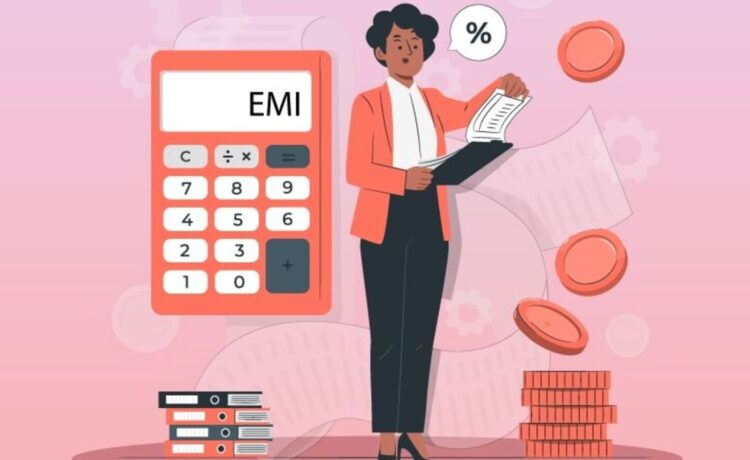The total cost of borrowing is substantially influenced by the interest rate on a personal loan. It is essential to have a thorough understanding of this rate before seeking a loan. The overall cost of borrowing is heavily influenced by the interest rate, as it dictates the additional amount paid in interest on the borrowed sum. A higher interest rate prolongs the loan repayment duration, and conversely, a lower interest rate shortens it. This is due to a higher interest rate leading to a larger share of the monthly payment being allocated to interest rather than reducing the principal amount. As a result, it takes an extended period to reach the point where both the principal and accumulated interest are fully paid off.
While personal loan interest rates can differ, Bajaj Finance offers the opportunity to obtain a personal loan with an 11% interest rate, allowing borrowers to access up to ₹40 lakh. Its interest rates range from 11% to 38%, with the specific rate being influenced by factors such as the loan amount, the borrower’s creditworthiness, loan tenure, and the type of employment.
|
Borrowers’ details |
Interest rates (in %) |
|
For Salaried applicants |
11% p.a. onwards |
|
For Self-employed Professionals |
15%-25% p.a |
|
For Chartered Accountants |
11%-18% p.a. |
| Source: PaisaBazaar (As of February 12, 2024) | |
It is uncommon for a lender to withhold information about the factors influencing personal loan interest rates, as most, including both banks and NBFCs, typically take these factors into significant consideration. Although Bajaj Finserv may not explicitly detail the precise impact of each factor, grasping the fundamental principles and comprehending how it determines personal loan interest rates based on various factors remains valuable. Here are some key factors that likely influence the lending company’s interest rates on personal loans:
- Credit score: Often deemed the most crucial factor, a higher credit score (above 750) signifies responsible credit behaviour and reduced risk, resulting in lower interest rates. On the contrary, a lower score (below 650) indicates higher risk and results in higher interest rates.
- Income and employment stability: A steady income and a secure employment history showcase your capacity to repay the loan. A higher income category and consistent employment typically result in more favourable interest rates.
- Loan amount and tenure: Higher loan amounts and extended repayment durations are perceived as riskier for the lender, potentially resulting in elevated interest rates.
- Debt-to-income ratio: The debt-to-income (DTI) ratio is pivotal in shaping personal loan interest rates. It provides lenders with insights into the proportion of your income already allocated to debt, presenting a snapshot of your financial stability and your capacity to meet loan repayment obligations.
- Relationship with Bajaj Finserv: Your credit behaviour is a huge determining factor while negotiating for low interest rates. Demonstrating a positive credit history with Bajaj Finserv, such as maintaining timely payments on existing loan accounts, could make you eligible for preferential interest rates.
- Market conditions and internal factors: The prevailing market interest rates and Bajaj Finserv’s internal policies may also influence the personal loan interest rates, although their impact is generally less significant compared to individual factors.
Even in the absence of detailed information, directing efforts towards enhancing your credit score, ensuring a steady income and stable employment, and considering alternative lenders for comparison can aid in securing the most favourable interest rate available.
Here’s your comprehensive 3-minute summary of all the things Finance Minister Nirmala Sitharaman said in her Budget speech: Click to download!















